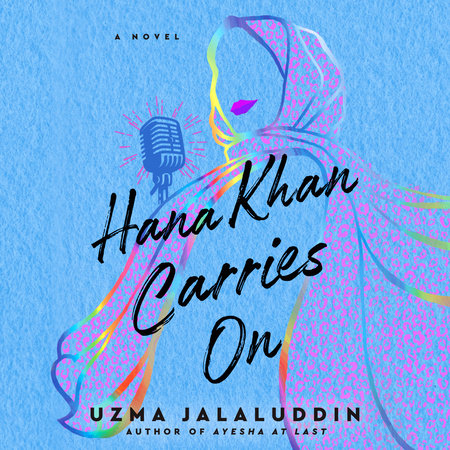READERS GUIDE
Reader’s GuideHana Khan Carries On by Uzma Jalaluddin
Discussion Questions:
1. Hana hosts her podcast anonymously and chats with her number one fan under their online pseudonyms. What is it about hidden identities online that seems to free people to reveal themselves? Discuss how this can manifest in both positive and negative ways.
2. Hana believes that the survival of her family business hinges on removing the competition of Wholistic Burgers and Grill in the Golden Crescent. She then makes a choice to discredit Wholistic Grill by creating a fake social media account and posting false complaints and safety concerns. Do you think the end justify the means in this case? At what point do individual needs for survival and economic livelihood justify morally poor choices? Do they ever?
3. The downtown Toronto attack sets off a series of outcomes after video of the incident is uploaded online. Rashid justifies his actions as necessary justice, while Hana fears the repercussions of posting this incident to the world. Discuss the role of video footage in the novel. Does broadcasting hate incidents help or polarize?
4. Hana deals with various microaggressions from her boss, Marisa, at the radio station, and from a long-ago interaction with her teacher Mr. Nielson. Even Rashid faces a subtle othering when the wellintentioned Yusuf assumes he can’t speak English. Contrast the impact of these more low-key incidents with the overt racist attacks. Is one more traumatic than the other?
5. Co- intern Thomas Matthews is a fellow South Asian coworker content to participate in damaging tropes about different communities to achieve his own career goals. How important is it for allies to speak up when they witness harmful behavior? Did Hana forgive Thomas too easily? In your own life, where do you catch yourself making assumptions and generalizations about communities other than your own?
6. What does Hana take away from Kawkab Khala’s story, and how does her “alleged aunt” inspire her own life choices? Have you been similarly inspired by a family story?
7. Hana creates a podcast about the experience of growing up as the daughter of Indian immigrants—there is a sense of freedom to it, and yet also a sense of having shallow roots. Discuss the podcast and how both things can be true. How does this relate to the book’s themes about family stories?
8. Hana and Aydin have a complicated relationship throughout the novel. Contrast their relationship online with their real-world interac – tions. The story ends on a positive note— what qualities kept them returning to each other, despite everything? What challenges and triumphs do you see in their future together?
9. Hana makes a decision regarding her internship toward the end of the novel. Have you ever been put into a similar situation? Should Hana have chosen a different outcome? How can real change and increased diversity be implemented in the workplace?
10. Junaid’s secret leads to a traumatic fallout for his family. How is he motivated by a flawed understanding and fear of mental health challenges? Discuss how cultural attitudes toward mental health issues can sometimes prevent people from seeking help.
11. There are various paths to romantic love in Hana Khan Carries On: Kawkab Khala bravely forges her own path; Rashid is a hopeless romantic; Hana’s parents had a traditional arranged marriage; Fazeela and Fahim met in school; Lily and Yusuf were childhood friends; Hana and Aydin’s romantic relationship began online. How does the novel explore the diversity of love, even within diverse communities?
12. At the end of the novel, the street festival nearly ends in a frightening riot, but Aydin and the Desi Beat performers manage to diffuse a tense situation. How did this final moment in the novel resonate with your own experiences dealing with charged situations? Is humor an effective strategy to fight back against hatred?






















